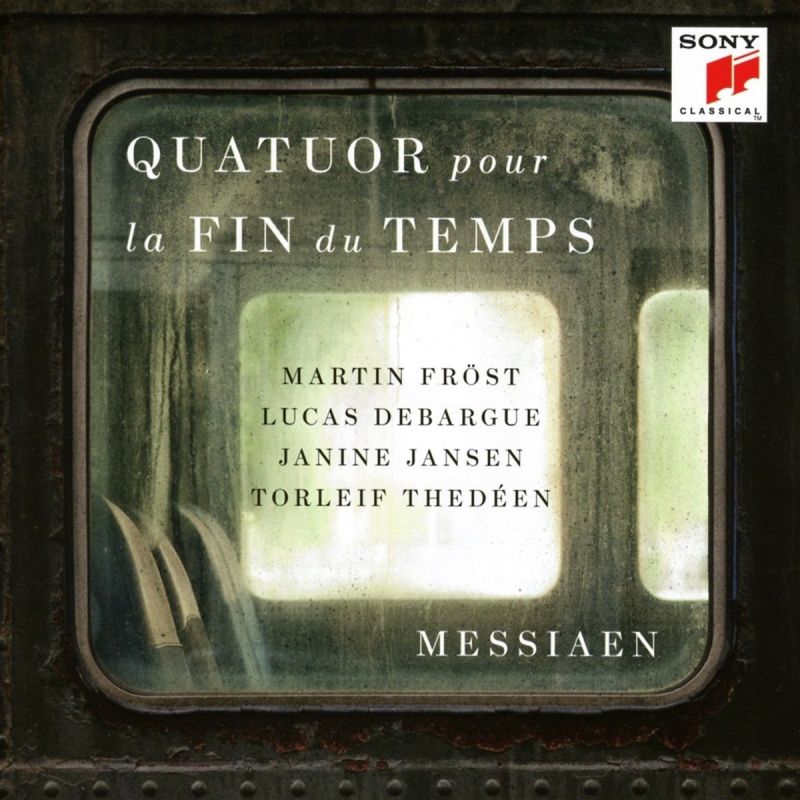MESSIAEN Quartet for the End of Time
View record and artist detailsRecord and Artist Details
Composer or Director: Olivier Messiaen
Genre:
Chamber
Label: Sony Classical
Magazine Review Date: 02/2018
Media Format: CD or Download
Media Runtime: 0
Mastering:
DDD
Catalogue Number: 88985 363102

Tracks:
| Composition | Artist Credit |
|---|---|
| Quatuor pour la fin du temps, 'Quartet for the End of Time' |
Olivier Messiaen, Composer
Janine Jansen, Violin Lucas Debargue, Piano Martin Fröst, Clarinet Olivier Messiaen, Composer Torleif Thedéen, Cello |
Author: Arnold Whittall
The Quartet has been much recorded in the CD era but I can’t recall another version that so persuasively favours the ferocity over the serenity. Martin Fröst’s introductory comment that ‘the music is still as relevant in today’s political climate as it was in 1941’ suggests that these performers might be especially responsive to the piece’s secular context alongside its vibrant spiritual aura. The two most contemplative movements, the slow meditations for violin and piano and cello and piano, have active intensity as well as contained eloquence here, and both are played significantly faster than more explicitly spiritualised accounts. The coordinated virtuosity of the movements involving all four players is projected with maximum rhythmic force, and Fröst’s performance of the extended clarinet monody finds potent drama in the contrasts between the improvisatory birdsong phrases and the desolate lament that frames them.
This is a remarkably vivid and well-balanced recording – for once, the very soft cello harmonics in the first movement can actually be heard against the richly spaced piano chords. The overall effect might be controversial in probing the score for every hint of disquiet and unease but no one can doubt the relevance (Fröst’s word) of the result. Perhaps his point is that classical music – at least in its modernist phase – needs to be angry as well as seductive to have the best chance of surviving within an increasingly populist culture.
Discover the world's largest classical music catalogue with Presto Music.

Gramophone Digital Club
- Digital Edition
- Digital Archive
- Reviews Database
- Full website access
From £8.75 / month
Subscribe
Gramophone Full Club
- Print Edition
- Digital Edition
- Digital Archive
- Reviews Database
- Full website access
From £11.00 / month
Subscribe
If you are a library, university or other organisation that would be interested in an institutional subscription to Gramophone please click here for further information.




